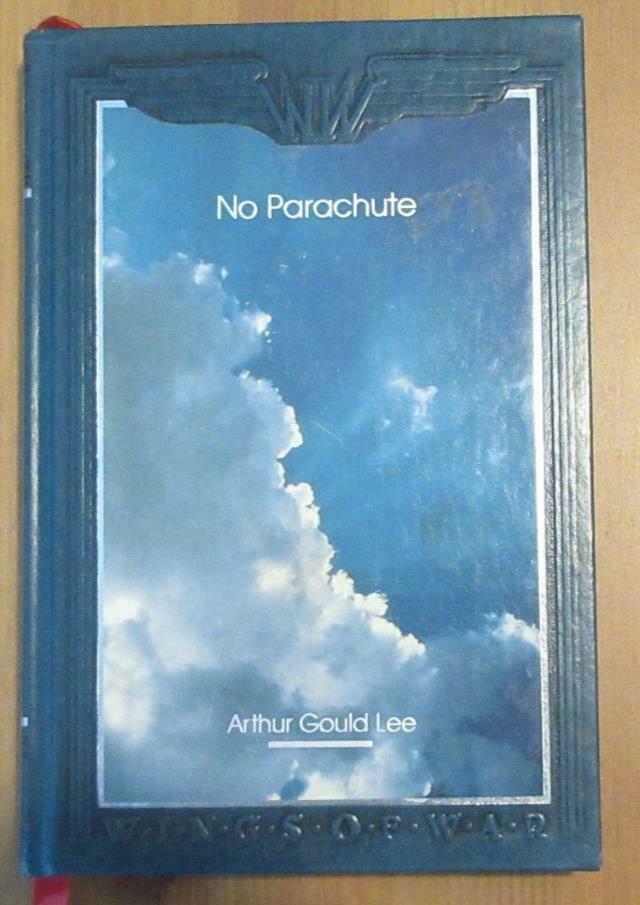-40%
NO PARACHUTE ARTHUR GOULD LEE CLASSIC RFC PILOT BOOK WINGS OF WAR
$ 5.27
- Description
- Size Guide
Description
NO PARACHUTE ARTHUR GOULD LEE CLASSIC RFC PILOT BOOK WINGS OF WARNO PARACHUTE ARTHUR GOULD LEE CLASSIC RFC PILOT BOOK WINGS OF WAR
NO PARACHUTE
By Arthur Gould Lee
Printed in 1991 by Time-Life (Wings of War series)
234 pages - Hardcover (9 inches - 23 cm tall)
Illustrations - Index
CONDITION: Very good, light general aging. Binding solid, pages clean.
Air Vice Marshal Arthur Stanley Gould Lee, MC (1894–1975) was a senior officer of the Royal Air Force (RAF). He began his flying career in the Royal Flying Corps during the First World War, scoring seven confirmed victories to become a flying ace and rising to the rank of captain. He continued his service in the RAF, serving throughout the Second World War before retiring in 1946 to devote himself to writing, including several volumes of autobiography.
From the young airmen who took their frail machines high above the trenches of World War I and fought their foes in single combat there emerged a renowned company of brilliant aces – among them Ball, Bishop, McCudden, Collishaw and Mannock – whose legendary feats have echoed down half a century. But behind the elite there were, in the Royal Flying Corps, many hundreds of other airmen who flew their hazardous daily sorties in outdated planes without ever achieving fame. Here is the story of one of these unknown flyers – a story based on letters written on the day, hot on the event, which tells of a young pilot’s progress from fledgling to seasoned fighter. His descriptions of air fighting, sometimes against the Richtofen Circus, of breathless dogfights between Sopwith Pup and Albatros, are among the most vivid and immediate to come out of World War I. Gould Lee brilliantly conveys the immediacy of air war, the thrills and the terror, in this honest and timeless account. Rising to the rank of air vice-marshal, Gould Lee never forgot the RFC’s needless sacrifices – and in a trio of trenchant appendices he examines, with the mature judgment of a senior officer of the RAF and a graduate of the Staff and Imperial Defense Colleges, the failure of the Army High Command to provide both efficient airplanes until mid-1917 and parachutes throughout the war, and General Trenchard’s persistence in a costly and largely ineffective conception of the air offensive.
Listing and template services provided by inkFrog












